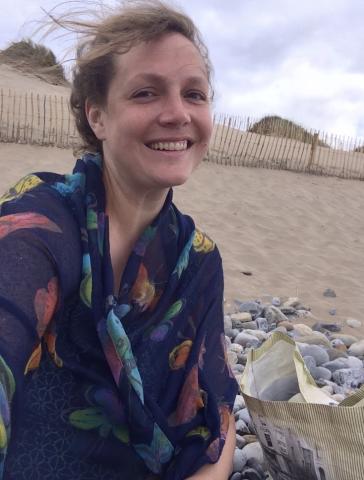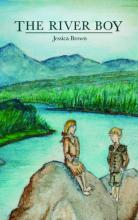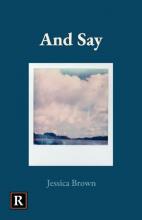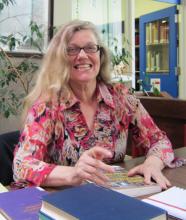The following blog appeared on the LMMI website on 24 March, when we were still hopeful that we would be able to meet in person and participate in workshops such as that planned by Jessica Brown. We look forward to Jessica presenting her paper “Eyes for Avonlea: Montgomery’s Affective Rendering of Nature,” which will be available tomorrow, 27 June.
It could be said that Jessica Brown has been ready for the 2020 Montgomery and Vision conference since the sixth grade in southeast Texas. She credits the Island author with teaching her “how to see and enjoy and name the beautiful.” As a child, she says, “I had no words for this; for me, the word ‘beautiful’ was reserved for the girls who were Homecoming Queens.” Jessica explains that without Montgomery, “even if I had the words for beauty, I wouldn’t have known how to see it.” Just how did Montgomery shape the ways Jessica sees the world?
“Montgomery helped me look for gradations at sunrise and sunset and taught me the difference between forest flowers and meadow flowers in the meadow. By this I mean, she taught me to specify … but more than that, she was able to shift attentive observation into the chance for involved, relational affection.”

Montgomery first appeared in Jessica’s life when she spied a copy of Anne of Green Gables on the book cart in her sixth-grade classroom. Reading the novel was a revelation and spurred prompt action. As Jessica tells the story, “within two days” her father helped her get a money order to buy the rest of the Anne series, and “within four weeks” (with another money order), she purchased every Montgomery book published by Bantam. Unsurprisingly, Jessica’s family travelled to Prince Edward Island when she turned sixteen, even though it meant a long trip for the family.

The memory of being a child reader, or, as she puts it, “when a book was almost everything we could possibly need,” continues to resonate for Jessica. In 2016 she published her first young-adult novel, The River Boy, which tells the story of a powerful friendship between two young people in Montana in 1909. Her fascination with finding words, images, and language to convey beauty, affect, and the enmeshment of humans with more-than-human worlds is evident in her first collection of poetry, And Say (2019).

When I asked Jessica how Montgomery’s portrayals of “nature” contribute to the need for greater awareness of and care for our planet, she replied: “Like The Tragically Hip’s line in the opening song for Anne with an E, Montgomery was 'ahead by a century.' Her portrayal of nature dissolves so many binaries (self/other, body/mind, nature/culture, human/non-human) that eventually even the reference point of these gets left behind. What emerges is a replete, shimmering, processual, connective relational field of more-than-human existence, sweeping humans up into the big drama of nature—and so, what does this mean for a reader’s ability to care for Earth?”
Jessica will explore this question at a workshop entitled “Ecologically Entangled: Ecophilosophy and Montgomery’s Vision of Nature” at the 2020 conference. “I’m really interested to think about this question with participants at the workshop because I think the answer will probably be more than obligatory responsibility … perhaps something more involved, enchanted … and responsive. I am so looking forward to this discussion.” During her workshop, she will be sharing what she learned from Montgomery about seeing the world and encouraging participants to share their experiences. I asked Jessica about ecophilosophy.
“In everyday language, ecophilosophy seeks to see our planet—and all the species, flora, fauna, weather, climates, minerals, and processes that abide here—not from a human-centred perspective and not even from the perspective of nature or animal as Other, but from the perspective of the networked-ness between all these elements. Connectivity takes centre stage … In ecophilosophy, the capacity for relation—the ability to affect and be affected, to be moved—is held dear: studied, protected, and perhaps even created.”
I asked, “How do depictions of ‘nature’ contribute to the field of ecophilosophy?” For Jessica, this question “gets the fires of inspiration going when considering what Humanities can bring to the table for climate action and care. Ecophilosophy is a philosophy about involvement. Depictions of nature, done well, involve the readers. A line from a stanza or a descriptive scene from a novel forms, annotates, and colours our poetic and narrative imaginations and thus our sense of who we are in relation to the world. What happens when these depictions expose our utter relatedness within the flora and fauna, the processes of tidal rivers and cold fronts?”
Having travelled widely and lived in different cities, states, and countries, Jessica now lives in the west of Ireland and is immersed in a doctoral program at the University of Limerick. In addition to an engagement with theories of affect and ecologies, Jessica will embed a novel in her dissertation to explore the myriad of emergent relationships in this era of the Anthropocene. Clearly, Jessica enjoys a challenge! She appears to be continuing the task that Montgomery set for her in the sixth grade: how to see and to relate to the complexity, the beauty, and the intensity of our human and more-than-human worlds.
Jessica’s workshop at the 2020 conference has been some time in the making. Imagine the enchanted sixth grader and the curious adolescent who is now coming back to Prince Edward Island as a scholar and a creative writer to offer the gift of acknowledgement: that yes, L.M. Montgomery and her vision were “ahead by a century.”

Jean Mitchell is Chair of the Department of Sociology and Anthropology at the University of Prince Edward Island where she teaches anthropology. She is editor of a collection of essays entitled Storm and Dissonance: L.M. Montgomery and Conflict and co-editor of two volumes of essays: with Jane Ledwell, Anne around the World: L.M. Montgomery and Her Classic (MQUP 2013), and with Rita Bode, L.M. Montgomery and the Matter of Nature(s) (MQUP 2018), which won ACQL’s 2018 Gabrielle Roy Prize (English) for literary criticism. She has just concluded a collaborative research project entitled “Ecologies of Care: Gardening Practices and the Cultivation of Well-Being in Vanuatu (South Pacific).”
